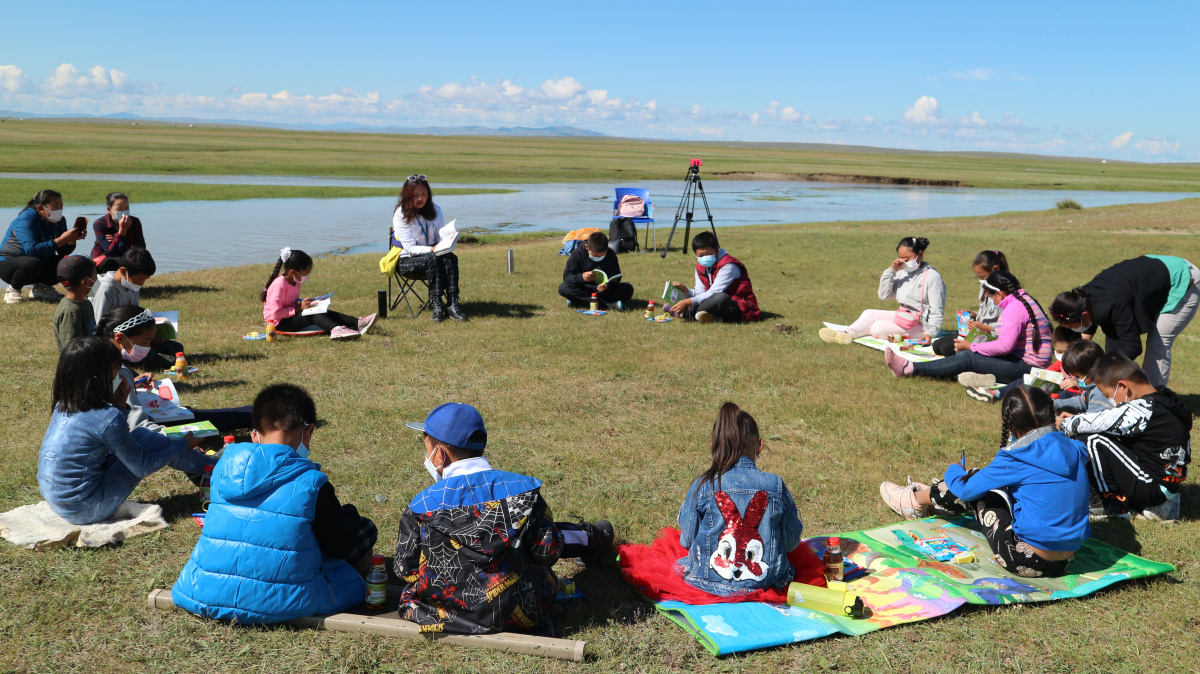
Across the world, movement restrictions, loss of income, isolation and high levels of anxiety during the COVID-19 pandemic triggered an exponential increase in violence against women and children.
In Mongolia, calls to the National Child Helpline reporting emotional abuse and neglect soared, spotlighting an urgent need to scale up protections of children and their rights. In consultation with the Government and with funding from the European Union, IDLO launched a programme, Mitigating the Impact of COVID-19 by Increasing Children’s Access to Justice in Mongolia. This addresses the stark rise in cases of gender-based violence and violence against children (VAC) in the country.
The programme has adopted creative ways to help children understand their rights and how to ask for help. Working with 13 CSOs in the eastern, western and central regions of the country, it provided 1,595 children with workbooks on healthy relationships and stress adaptation in response to COVID-19. Colourful illustrations broke down concepts of human rights, personal space and VAC in child-friendly ways. The workbooks offered children guidance on how to seek support from specialists, parents, schoolteachers, social workers, the police and telephone hotlines.
Thirteen-year-old Bazarsad Uchralt, who lives in a remote area of central Mongolia, shared how the workbooks taught him that “children’s rights mean that we are all equal”.
“I liked the three heart-shaped heroes called Arya, Zuri and Dora in this workbook,” he said. “I also liked the part about child protection where I learned about the #108 children’s helpline. I shared the things I learned about protecting friends, respecting each other’s differences and respecting others’ personal space with my classmates, as some children tend to bully others.”
To raise broad public awareness about violence against children, the national TV station and the herders’ channel, Malchin TV, broadcast three animated videos on the workbook’s key concepts: “respect”, “protect” and “implement”.
IDLO has taken specific measures to safeguard children with disabilities. It designed the “Live, Feel, Fly” training module and accompanying workbook, which reached 240 parents of children with disabilities in the country’s western, eastern and Khangai regions.
“This workbook helps us change our perceptions of disabilities and learn about different types of mental disabilities,” said Tugsjargal Ganchuluun, a special needs teacher and parent of a child with Down Syndrome who participated in a training in eastern Mongolia. “But it also reminds us to take care of ourselves, to give ourselves a chance to relax, to self-reflect and to plan for a balanced life while focusing on our children’s special needs.”
Mongolia has four laws to protect children but struggles with limited capacity and unclear procedures on implementing them. IDLO has helped boost the capacity to respond to crimes against children and address individual child protection cases, including by working with the newly established Child Protection Unit under the National Police Agency (NPA).
In early 2022, IDLO developed and trained 60 NPA Child Protection Officers on the “Methodology on Prevention and Combatting Child Rights Violations”, a curriculum covering the child protection framework and application of child-centred approaches. By August 2022, these officers had trained 327 police officers nationwide.
Ariunaa Bayarkhuu, an NPA Child Protection Officer and Police Captain in Ulaanbaatar, told IDLO, “I learned more about gender, gender stereotypes, psychological differences between boys and girls and characteristics of [different] generations, which helped me to understand the adolescents and youth better and improve my communications with them.”
IDLO also provided training on child protection frameworks and gender-sensitive and child-centred case management to the Legal Committees for Child Rights that operate in all 21 provinces and districts of the capital. A capacity building programme for CSOs helped nearly a dozen apply for accreditation to provide child protection services.

